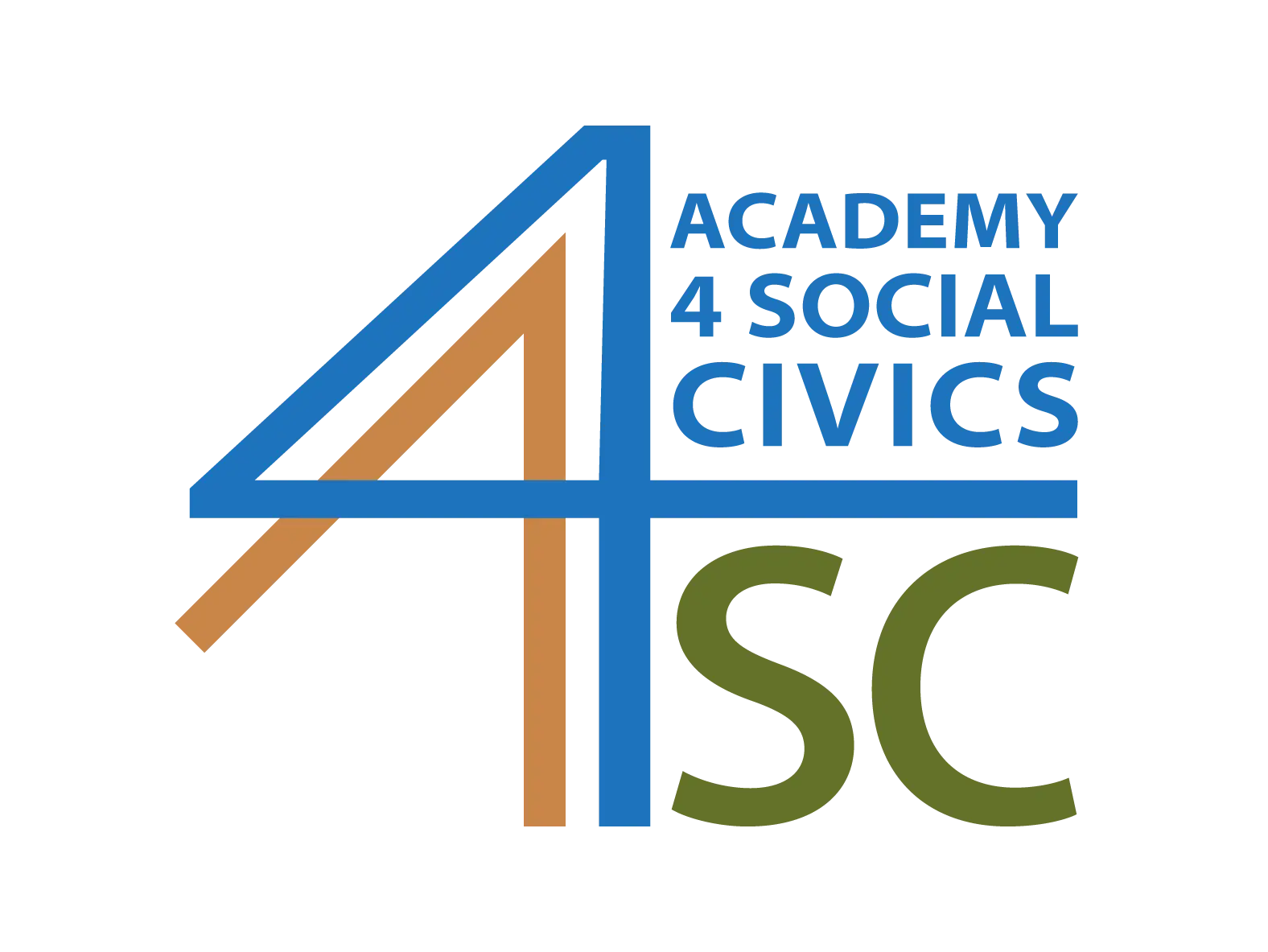Know
Students gain knowledge about societal systems, global challenges, and their role within their communities.
Care
Students develop a personal connection to the issues that matter most to them, understanding the broader impact of civic responsibility.
Act
Students build the skills and tools needed to translate their knowledge and passion into meaningful action and leadership.
The Challenge
In an era marked by rapid technological advancement, environmental crises, and deepening societal divides, students often lack the civic education and leadership training necessary to navigate these complexities.
However:
- Civic education is underemphasized in many educational systems.
- When taught, civics education is largely focused on bureaucratic processes.
- Students are taught in silos without the connections needed to solve real-world challenges.
- Educators lack accessible, high-quality resources to integrate civic leadership and interdisciplinary thinking into their classrooms.
Without a shift towards integrated civic education, we risk raising a generation unprepared to lead in a rapidly changing world.
Our Solution

We envision a world where every student and educator has the knowledge, care, and tools to lead effectively.
At Academy 4 Social Civics, we address this by:
- Creating an interdisciplinary curriculum that connects societal challenges across multiple disciplines (e.g., philosophy, science, history, psychology, economics etc).
- Providing resources, lesson plans, and interactive content designed for both educators and students.
- Offering a centralized platform where learning is enriched by personalized dashboards, professional development courses, and leadership programs.
- Promoting collaborative problem-solving spaces where students and educators explore how issues intersect and require integrated approaches.
Our Belief
Human progress has always been shaped by individuals who step forward to understand, care, and act on behalf of their communities. From climate action to responsible AI, from local governance to global diplomacy, the challenges of our time demand a new generation of civic leaders who are:
- Informed and critical thinkers
- Empathetic and motivated changemakers
- Equipped with actionable skills and tools
At Academy 4 Social Civics, we are agnostic about the specific causes students choose to champion. Instead, we are committed to improving the processes by which civic leadership happens—through robust education, informed discourse, and equitable collaboration.
We believe that the future of human progress depends not on a few voices leading the many, but on many voices leading together.
Our Approach

We use a three-pronged approach to empower students with the mindset and tools they need to lead:
1. Know: Building Knowledge — We equip students with foundational knowledge about civic systems, societal challenges, and global interconnections.
- What are the pressing challenges of our time?
- How do these challenges affect their communities and the world?
- Where can they find reliable information and deepen their understanding?
2. Care: Developing Commitment — We help students connect their personal values and passions to real-world issues.
- Why does this issue matter to them?
- How does it impact their community?
- Why should others care, and how can they inspire collective concern?
3. Act: Taking Action — We provide students with practical tools and frameworks to take action in their communities and beyond.
- What specific actions can they take to create change?
- How can they collaborate with others for a greater impact?
- What organizations, tools, or networks can they leverage for success?
The Challenge
In an era marked by rapid technological advancement, environmental crises, and deepening societal divides, students often lack the civic education and leadership training necessary to navigate these complexities.
However:
- Civic education is underemphasized in many educational systems.
- When taught, civics education is largely focused on bureaucratic processes.
- Students are taught in silos without the connections needed to solve real-world challenges.
- Educators lack accessible, high-quality resources to integrate civic leadership and interdisciplinary thinking into their classrooms.
Without a shift towards integrated civic education, we risk raising a generation unprepared to lead in a rapidly changing world.
Our Solution
At Academy 4 Social Civics, we address this by:
- Creating an interdisciplinary curriculum that connects societal challenges across multiple disciplines (e.g., philosophy, science, history, psychology, economics etc).
- Providing resources, lesson plans, and interactive content designed for both educators and students.
- Offering a centralized platform where learning is enriched by personalized dashboards, professional development courses, and leadership programs.
- Promoting collaborative problem-solving spaces where students and educators explore how issues intersect and require integrated approaches.
We envision a world where every student and educator has the knowledge, care, and tools to lead effectively.
Our Belief
Human progress has always been shaped by individuals who step forward to understand, care, and act on behalf of their communities. From climate action to responsible AI, from local governance to global diplomacy, the challenges of our time demand a new generation of civic leaders who are:
- Informed and critical thinkers
- Empathetic and motivated changemakers
- Equipped with actionable skills and tools
At Academy 4 Social Civics, we are agnostic about the specific causes students choose to champion. Instead, we are committed to improving the processes by which civic leadership happens—through robust education, informed discourse, and equitable collaboration.
We believe that the future of human progress depends not on a few voices leading the many, but on many voices leading together.
Our Approach
We use a three-pronged approach to empower students with the mindset and tools they need to lead:
- Know: Building Knowledge — We equip students with foundational knowledge about civic systems, societal challenges, and global interconnections.
- What are the pressing challenges of our time?
- How do these challenges affect their communities and the world?
- Where can they find reliable information and deepen their understanding?
- Care: Developing Commitment — We help students connect their personal values and passions to real-world issues.
- Why does this issue matter to them?
- How does it impact their community?
- Why should others care, and how can they inspire collective concern?
- Act: Taking Action — We provide students with practical tools and frameworks to take action in their communities and beyond.
- What specific actions can they take to create change?
- How can they collaborate with others for a greater impact?
- What organizations, tools, or networks can they leverage for success?
Civic Leader: Defined

Curiosity

Recognition of Equality

Sense of Justice
Self-Respect

Trustworthiness

Intellectual Humility

Responsibility

Visionary

Action-Oriented

Compassion
Pedagogical Approach
As educators, we have an inordinate influence over our students’ lives. Their experience with us influences both their present and future well-being, intellectual and otherwise. We recognize this, not to inflate our self-importance, but to recognize the level of care that we must put into carrying out our responsibility as educators. The recognition of this responsibility to our students shapes how we view our role in the classroom: that of a caregiver. Our pedagogical approach and practices are thus all in the interest of best taking care of our students.
Respecting Personhood
A4SC respects the full personhood of our students, staff, and volunteers. We recognize that our programs are only a part of their lives and rather than attempting to force the programs into other parts, we allow the other parts to work in tandem with curricula and responsibilities.

Flexibility: Our course policies and schedules are made with the understanding that students have extended lives outside of the program. If flexibility on our part is likely to improve students’ ability to engage with the program, we allow students to request modifications and accommodations. We also craft our programs to ensure our content is available in various formats (live and in-person, asynchronous and synchronous) and offers flexible options for students to engage with our materials.

Personal Engagement: We try to draw upon students’ lived experiences by encouraging them to relate content to their own lives. Our courses ask students to apply learned skills to social issues that matter to them. Participants in our programs are always asked to bring their own experiences and opinions to class meetings and assignments and we encourage students to see each other as valuable sources of knowledge.

Self-Care: We encourage students to be aware of their limits and take care of their mental well-being. We know that being a student is difficult and that students may have challenges that come up during their involvement in our programs. Their first priority should be to take care of themselves. When speaking with students, we make sure to show interest in their lives, so they know that they can talk to us if things are difficult.

Safe Space: We strive to ensure that everyone feels free to take care of themselves and take control of their own learning process. Our discussions are always open to all ideas and arguments as long as they convey respect for fellow classroom members. We encourage students to think about their own roles in the learning process of others by having discussions on good classroom communication and dynamics, and by incentivizing collaborative learning rather than showmanship. Our programs expose students to a number of difficult topics and we encourage the use of trigger or content warnings, allowing students to take control of their own well-being.
Fostering Intellectual Growth
Our ultimate goal is to ensure that students grow intellectually. Our students should leave their experience with A4SC either having examined and refined their previous ideas and beliefs when confronted with the material or having changed those ideas and incorporated the new ones into their thinking. Both of these count as intellectual growth and neither is prioritized over the other.

Intellectual Journeys: We design our programs to encourage students to appreciate the process of learning as much as, if not more, than the final destination. In our programs that involve live instruction, we vary the types of instruction and never lecture extensively without stopping for discussion and interaction. We are responsive to student needs in the moment and adjust over the course of the program. We strive for a representation of the material that adapts to how the students best understand it rather than a preconceived notion of what the right structure is.

Neutrality and Dissent: We believe that disagreements and differences should not preclude respectful interactions. We encourage participants to raise objections, question the reasoning, or express discomfort with the material. Often, the topics we cover are highly personal in nature and students have strong inclinations about them. We encourage them to engage with those inclinations, either learning how to better defend them or revising them. While it is impossible for us to remain neutral on our own takeaways from the course material, we strive to hold neutrality towards what ideas and beliefs students themselves find to be of utmost importance.

Skills: We operate under the assumption that specific content is much less important for long-term intellectual growth than developing the requisite skills to engage with broader issues. While we hope that our participants walk away with some new knowledge and understanding of the topics covered, we are much more concerned with making sure they develop skills that they can use in the future to continue to engage with similar ideas. Our programs reflect this goal, by asking students to exercise and apply critical thinking, argumentative writing, and persuasive speaking skills. Other program activities ask students to role-play as key decision-makers and industry leaders to practice communication, negotiation, and leadership skills. We also focus on building students’ ability to civically engage by providing training in various skills necessary for this work from direct instruction on non-profit careers to improving students’ ability to participate in public discourse on important issues.

Ownership: We want students to take ownership of their learning and thus encourage them to communicate their needs and concerns to us as they arise. We view our pedagogical practices as being in constant revision and adaptation. To this end, we encourage feedback from program participants and those who use our content and continuously update our materials, courses, and processes. We provide various opportunities for all major stakeholders (students, parents, and teachers) to give us feedback on our work through surveys, conversations, and exit tickets. We also purposefully work with students and teachers by inviting them to serve on advisory councils to influence the directions our programs take.
